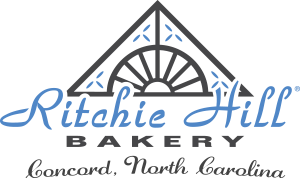What the heck is a cheese straw? January 09 2024

And why are they called straws?
(That’s our #1 FAQ!)
By Beth Ritchie Alm
We’ll just admit we have no idea why cheese straws are called straws. You certainly can’t drink anything through them. We can only guess it’s because of their traditional long, narrow shape. Or, it’s possible they were named by the Brits who often have creative names for things.
Cheese straws origins
Some food historians believe the cheese straw originated in England with the British shortbread “biscuit.” Others cite the biscotti and hard breads of Italy and Spain. But most agree that, regardless of their start, the cheese straw adapted well to southern life and may in fact have originated in the Southeast.
This article from Bourbon and Boots* written by Libby Murphy is a wonderful summary of what we know and don’t know.
"Cheese straws are one of life’s little pleasures, nothing fancy, just addicting. Chances are you probably cut your teeth on them if you’re of a certain age and grew up in the South. They’ve long been the go-to staple for cocktail parties, church potlucks, wedding receptions, and funeral food alike. Practically every family has a recipe that was passed down to the next generation and no one really thought much about it."
"Or at least not until boutique bakeries began shipping these crispy cheesy biscuits all over the country. Katy bar the door, the demand rose like the temperatures in August; cheese straws were born again and are all the rage at parties and for hostess gifting from coast to coast. These buttery cheesy pastries will melt in your mouth and if you don’t believe it, just try it."
"According to lore, the hot and humid southern temperatures gave rise to the cheese straw as a way to preserve cheese. Reportedly, they were served along the Carolina coast pre-Civil War and The White House Cookbook (1887) includes the first known recipe for them per se. Food historians can’t agree on the exact origin but most tend to believe that cheese straws are of American origin first baked in Southern kitchens"
"Cheese straws were served at a White House dinner in 1913 hosted by President Woodrow Wilson. According to the Library of Congress, they were also on President Franklin Roosevelt’s Thanksgiving table in 1937. Magnolia’s — the restaurant inside Atlanta’s heart and soul department store, Rich’s — served thousands of them over the years, and the Historic Mobile (Alabama) Preservation Society hosted a cook-off in 2012 to determine the best cheese straws in all the land."
"Like lightening bugs, honeysuckle, and hot summer nights, cheese straws are part of the vernacular in the South. From Steeplechase picnics in Nashville to tailgating in the Grove at Ole Miss; cheese straws are as popular as ever. Florida’s Executive Residence kept a ready supply in the freezer at Gov. Bob Graham’s request, and the mecca of fine dining in New Orleans, The Commander’s Palace, even featured these tasty nibbles in their cook book."
"Cheese Straws are one of the most versatile foods on the planet. They are apt to show up at wine-tastings, picnics, debutante balls, christening brunches, or as afternoon snacks. Sometimes as stand-ins for croutons or crackers or even with the cheese course at elegant dinners – could the South exist without them? Nothing pairs with a libation better, so it’s any wonder that in the land where a good cocktail party is an institution, they remain the appetizer of choice.
Cheese straws remain a Southern delicacy
So, while the origin may be inconclusive, the cheese straw stands the test of time as the South’s favorite snack. Like most southern families, our Heath’s Cheese Straws recipe has been handed down for generations. Our bakery manager Charles Ritchie is a fourth-generation cheese straw master. We pride ourselves on a classic southern version with extra sharp cheddar cheese and a spicy finish that builds until you reach for the next one. They are the quintessential Southern delicacy.
*Note: Exerpt from a Bourbon and Boots (bourbonandboots.com) post, February 12, 2013 by Libby Murphy
